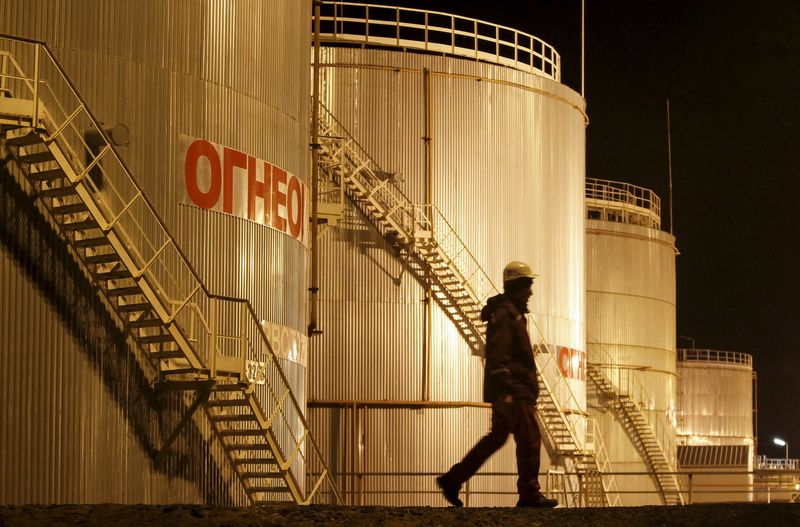By Barani Krishnan
Investing.com - Oil prices settled near seven-year highs on Tuesday, rising on the premise of a global supply squeeze despite forecasts pointing to a fourth straight weekly build in U.S. crude inventories.
U.S. crude’s West Texas Intermediate benchmark settled up 52 cents, or 0.6%, at $82.96 per barrel. On Monday, WTI hit a seven-year high of $83.87 before ending lower.
London-traded Brent crude, the global benchmark for oil, finished Tuesday’s trade up 75 cents, or 0.9%, at $85.08. It hit a three-year high of $86.04 in the previous session.
“Crude price volatility is here to stay as demand uncertainty remains elevated over the short-term,” said Ed Moya, analyst at online trading platform OANDA. “Given the relentless winning streak, oil prices are ripe for significant rounds of profit-taking. But any weakness might be limited as the short-term outlook still remains very bullish.”
Crude prices saw support on Tuesday from news reports suggesting that Western nuclear inspectors weren’t making any headway in talks with Iran that would be crucial for advocating a drop in U.S. sanctions on Tehran’s oil that would provide a relief to the global supply squeeze.
The head of the International Atomic Energy Agency noted that surveillance at Iran’s Tesa Karaj facility was no longer “intact”. Expectations had been growing that Tehran was shortly going to return to the negotiating table for reviving the 2015 nuclear deal.
The latest gains in WTI and Brent, which are up about 60% each on the year, came ahead of a weekly snapshot on U.S. crude, gasoline and distillate stockpiles due from the American Petroleum Institute at 4:30 PM ET (20:30 GMT). The figures will serve as a precursor to the official weekly inventory data due on Wednesday from the EIA, or U.S. Energy Information Administration.
Analysts tracked by Investing.com have forecast that crude inventories rose by 1.86 million barrels for the week ended Oct 15, on top of the previous week’s build of 6.09 million.
Gasoline inventories likely dropped by 1.27 million barrels, after the drop of 1.96 million in the previous week, forecasts showed.
Stockpiles of distillates, which include diesel and heating oil, is expected to have fallen by 700,000 barrels, extending the previous week’s slide of 24,000.
